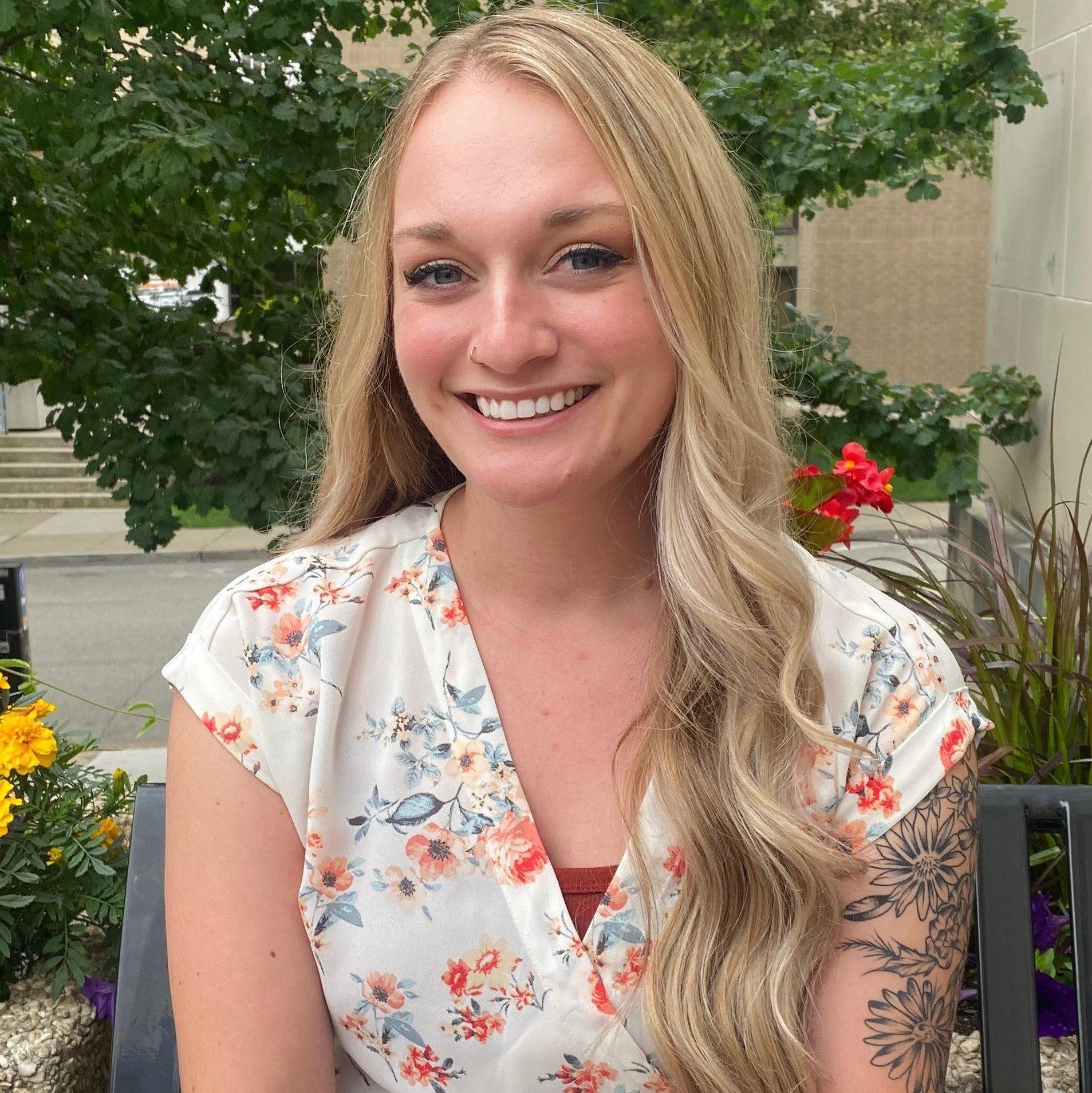Mentoring at Magee: Empowering the Next Generation of Women's Health Leaders

By: Faith Jeffcoat
For students early in their education and careers, internships play a crucial role in providing exposure, knowledge, and an opportunity to explore their interests and identify their passions. For Kayla Komondor, the a-ha moment happened quickly.
 | “It took just one day in the lab for me to know that women’s health and reproductive research is what I wanted to do. It completely changed the trajectory of my life,” says Kayla Komondor, a current doctorate student in the Department of Biological Sciences at the University of Pittsburgh. |
While studying biology and chemistry at Robert Morris University, Kayla became connected with the McGowan lab, now the Gastrointestinal Mucosal Lab, a research group focused on novel HIV prevention agents and gastrointestinal-related research at Magee-Womens Research Institute (MWRI). She interned there in the fall of 2017 through the summer of 2018. Kayla had the opportunity to work on different projects in the lab, including working on a novel spermicide under the HIV prevention medicine umbrella of the lab. Because Kayla’s mentors knew she was interested in reproduction research, they introduced her to this fertility-related project.
"My time at MWRI provided a great opportunity for hands-on learning outside the classroom and seeing what happens day-to-day inside a lab. It was truly an eye-opening experience,” Kayla says. “Outside of the lab work, I wasn’t limited to learning from just one person. I got to meet weekly with different professors and principal investigators working on different research, some working in areas related to the research I plan to pursue following the completion of my Ph.D. I even got to work on a couple of clinical trials, which was an entirely unique experience.”
Under the guidance of her mentors, Dr. Ian McGowan, Aaron Siegel, Dr. Rhonda Brand, and Ashley Zyhowski, Kayla began to define her path in reproductive research, which led her to pursue her PhD.
“I am now in the Carlson Lab at the University of Pittsburgh that focuses on studying polyspermy blocks,” Komondor says. “I'm hoping in my postdoc I will be able to do research in reproduction and fertilization with more of a focus on research using mammals rather than using external fertilizers.”
To those considering an internship at MWRI, “Women’s health research has huge gaps in it that really need to be filled. MWRI is taking the lead in closing those gaps,” Kayla says. “Absolutely jump on the opportunity to intern at MWRI and take advantage of the opportunity to be a part of life changing research. Learn as much as you can while you're there because you truly can find an expert in just about anything. It’s incomparable.”
Interested in Interning at MWRI? Visit https://mageewomens.org/for-re...
Read the full Winter 2024 MAGEE Magazine issue here.